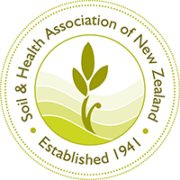The Therapeutic Products Bill: A step forward for natural health products?
Natural health products are included in the Therapeutic Products Bill which was presented to Parliament at the end of last year. Dr Sandra Clair looks at the reasoning behind it and says that, if executed well, this could be a step in the right direction for pluralistic medicine in New Zealand.
We hope you enjoy this free article from OrganicNZ. Join us to access more, exclusive members-only content.
The Therapeutic Products Bill intends to establish a new regulatory regime for therapeutic products, including plant-based medicines and dietary supplements (Natural Health Products). Submissions closed 15 February 2023. The Health Committee is due to report back to the House of Representatives on 14 June 2023.
Health is the biggest asset we have, an asset that many people wish to actively support. Until now, this has been rather difficult to do using herbal medicines or dietary supplements due to outdated regulatory restrictions that prohibit the description of their therapeutic purpose.
Take the example of cough medicines. You have a debilitating chronic cough, you go into a store and look for a natural product to help you to get rid of this cough. However, no natural product describes this complaint. At best you can only find products labelled with vague descriptions such as ‘relax and soothe a tight chest’.
In contrast, if you were in Australia, Canada, or countries in the European Union (EU), you could select a product that clearly references your condition: ‘Traditionally used in Western herbal medicine to relieve both dry and mild chesty coughs’. If you were in Switzerland, the basic public health insurance would even pay for a natural cough medicine, as such remedies are listed as effective and safe medicines.
History
Traditional plant medicines (TPMs) are therapeutic substances derived from plants that grow naturally in our environment and are used according to long-established medical customs. Over centuries they have been the mainstream medicines on all levels of care, grounded in an impressive body of empirical evidence. For example, seventy-five percent of 119 widely used modern drugs are either compounded directly from medicinal plants or synthesised based on plant structures, and they have the same or similar therapeutic purpose as they originally had in traditional medicine.
Fit for the future?
The Therapeutic Products Bill replaces the Medicines Act 1981 and Dietary Supplements Regulations 1985. More than 10 years in the making, it is intended to be a flexible regulatory framework for how therapeutic products are manufactured, prescribed, imported, advertised, supplied and exported, and make the regulation of clinical trials more robust.
Health Minister Andrew Little said it will enable New Zealand to take advantage of advances in medicine, such as cell and tissue therapies, emerging gene therapies, and the use of artificial intelligence and machine learning software.
“Having risk-proportionate approval systems will improve access to necessary and life-saving medicines, such as vaccines in a pandemic.”
Fit for the future?
The Therapeutic Products Bill replaces the Medicines Act 1981 and Dietary Supplements Regulations 1985. More than 10 years in the making, it is intended to be a flexible regulatory framework for how therapeutic products are manufactured, prescribed, imported, advertised, supplied and exported, and make the regulation of clinical trials more robust.
Health Minister Andrew Little said it will enable New Zealand to take advantage of advances in medicine, such as cell and tissue therapies, emerging gene therapies, and the use of artificial intelligence and machine learning software.
“Having risk-proportionate approval systems will improve access to necessary and life-saving medicines, such as vaccines in a pandemic.”
Popularity
Legislation and consumer trends have clearly forked in New Zealand over many decades. The upsurge in organic food consumption is directly linked to an increasing awareness that our bodies function best when they are well nourished and maintained whilst minimally exposed to foreign and toxic chemicals. The same principles apply when it comes to healthcare, where natural medicines are successfully applied as a first line of defense in common and non-life-threatening illnesses.
The World Health Organisation estimates that about 80% of people around the world use traditional therapeutics to care for their health. Notably, the prevalence of their use is also high in countries where access to pharmaceutical medicine is subsidised, chiefly because they are used to prevent health issues from arising in the first place and are seen as safer than drugs to deal with self-limiting or chronic health complaints.
In New Zealand, traditional systems of medicine are used to address primary healthcare needs, as is broadly consistent with the majority of countries around the world. Studies estimate that about 50% of adults and 70% of children use therapies and preparations from sources outside pharmaceutical healthcare, with plant medicines being the most prevalent non-pharmaceutical form of self-medication.
Legislative background
Despite their prevalent use, the current New Zealand legislation does not recognise traditional plant medicines as therapeutic products and does not acknowledge their positive contribution to care.
There have been several attempts over the past decades to address the outdated regulatory framework regarding natural health products (NHPs).
Most notable was the failed pursuit of a joint regulatory authority for medicines and other therapeutic products in partnership with Australia under the joint Australia New Zealand Therapeutic Products Act and the subsequently proposed stand-alone domestic bill last debated in 2016. The trans-Tasman regulatory system met strong concern from consumers and politicians for being overly restrictive and potentially harmful to New Zealand consumers and the natural health industry. The subsequently proposed New Zealand-only regime (the Natural Health and Supplementary Products Bill) acknowledged the low risks of herbal medicines and dietary supplements. It intended to protect consumer choice by providing an appropriate, low-cost access regime to NHPs that are safe, effective, and suitable for use in self-treatment. It enjoyed wide political cross-party, industry, and consumer support, and had passed the second reading in Parliament, despite a minor but vocal opposition. It was a surprise when the incoming Labour government shelved this bill in 2017 due to coalition talks with New Zealand First.
From an international perspective, the current New Zealand legislative framework is out of step. It is a legacy of our colonial past, and does not align with World Health Organisation directives to support and integrate traditional and complementary medicine as a vital part of state-supported or state-funded healthcare to universally cover primary health needs of all residents.
From a domestic perspective, current regulations contravene provisions in the Treaty of Waitangi and also do not adequately support patient choice of healthcare, which is protected under the Code of Health and Disability Services Consumers’ Rights Regulations 1996 of the Health and Disability Commissioner Act 1994. This is because the scope and purpose of traditional, non-pharmaceutical medicines cannot be accurately stated due to clauses in the Medicines Act 1981. Although the Dietary Supplement Regulations 1985 (part of the Food Act 1981) provides a framework of a sort for quality requirements, they too disallow therapeutic health claims on NHPs, even when a long-standing empirical knowledge-base or scientific evidence is available. Such restrictions impede appropriate use of these low or non-toxic health products and may even promote the inappropriate use of them through the resulting paucity of appropriate consumer information.
This contrasts with health policies in Australia, Canada and European countries that legally protect the status of traditional medicines. For example, the EU Directive 2004/24/EC grants traditional medicines their own regulatory classification as Traditional Herbal Medicinal Products. Switzerland has gone a step further: since the binding constitutional referendum in 2009, phytotherapy (plant-based medicine) is a treatment option that must be adequately integrated into public healthcare services for its citizens. This constitutional guarantee enables plant medicines to be funded through basic health insurance and secures patient-centred and cost-effective treatment options alongside pharmaceutical drugs and technological interventions.
Rongoā
While all traditional and herbal medicines and dietary supplements such as vitamins and minerals are included under natural health products, it is not clear yet how rongoā, the holistic healing practices based on tikanga and mātauranga Māori, and in particular rākau plant-based remedies, will be treated under TPB and its regulations.
Rongoā Māori is a Te Tiriti-protected taonga, however, there is no explicit reference to Te Tiriti o Waitangi protection clauses in the released draft. At the first reading in Parliament the Minister of Health Hon Andrew Little noted that he has since commissioned a workstream to consider how the ‘regulatory settings support the traditional practice of rongoā while balancing this objective against the need to provide assurances for patient safety and export market access for rongoā practitioners’.
It will be essential that Māori have input in line with the intent of the Crown-Māori partnership model.
Therapeutic Products Bill
The Therapeutic Products Bill (TPB) intends to establish a new regulatory regime that includes plant-based medicines and dietary supplements under the category of natural health products (NHPs). It repeals all secondary legislation made under the Medicines Act 1981 and revokes the Dietary Supplements Regulations 1985, with the aim to provide comprehensive, risk-proportionate regulation of the various categories of therapeutic products and technologies.
While the current Medicines Act is administered under Medsafe, the TPB proposes to establish a new Therapeutic Products Regulator that would be responsible for ensuring the safety, quality, and efficacy of regulated products, including natural health products, across their lifecycle. The TPB acknowledges the generally lower-risk of NHPs, which are therefore intended to be evaluated against different standards than those for higher-risk pharmaceutical drugs and medical devices.
It is positive that the TPB recognises plant-based medicines and dietary supplements as therapeutic products as this will allow informed consumer choice, e.g. a herbal remedy for cough will be able to say so.
The TPB also recognises that herbal medicines and dietary supplements are generally low risk. Based on this, it aims to enable a cost-effective regime that gives New Zealanders confidence that their trusted natural health products will remain available, are true to label, and provide the health benefits claimed for them.
If the TPB is passed by Parliament, it will potentially take another 1-2 years to develop the detailed regulations required to complete the regulatory scheme before it comes into force, with a backstop date of 1 September 2026. If done well, TPB could pave the way for a pluralistic healthcare system that – in the words of WHO – finally emphasises people’s rights to quality health services that are available, accessible, affordable, and culturally acceptable.
TPB detail
There is still a significant amount of detail that needs to be determined in secondary legislation to be made under the TPB. It will be imperative that these regulations reflect a regime that is appropriate, feasible, practical, and affordable for NHPs. Dr Clair points out some areas that need clarification and resolution to ensure the objectives of the Bill:
- The list of approved ingredients is as wide as possible.
- In the absence of negative safety reports evidence, a natural health product should be grand-fathered into the system by granting market authorisation if it has been in the New Zealand market for a minimum of 10 years. This ‘well-established use’ principle is a recognised regulatory principle.
- Traditional plant medicines are distinct in their healing purpose and long-standing evidence base from modern dietary supplements which were developed in the 20th century to address nutritional deficiencies. Therefore, they require separate considerations. The right to formally access and use them needs to be adequately protected.
- A definition is needed for ‘Traditional Medicine’ and ‘Traditional Practice’. This should include Rongoā Māori and all WHO-recognised medical traditions.
- The TPB permits health benefit claims with scientific evidence or traditional use. It should also permit those health benefit claims trusted by overseas regulators (e.g. Australia, Canada, EU, UK, Switzerland). Such regulators permit reference to therapeutic uses recorded in authoritative clinical textbooks and monographs as this professional body of literature is the most comprehensive and clinically relevant repository of traditional and empirical evidence. In oral traditions, e.g. Rongoā Māori, recognized traditional experts embody this medical knowledge, and this should be admissible as evidence of traditional use.
- The regulations should allow flexibility in description of conditions. For NHPs, the naming of conditions should not be solely based on the International Classification of Diseases (the ICD) but also by their equivalent in traditional or lay terms, so that they can be related back to traditional evidence and be generally understood by members of the public.
- Practitioner-only category : professionally trained Medical Herbalists and Naturopaths need to be able to maintain access to stronger acting practitioner-only products (not sold over-the-counter). In addition, Schedule 1 of the current Medicines Regulations prevents medical practitioners from legally accessing several traditionally used plant species because they are regulated as pharmaceutical substances in conjunction with their synthetic isolates, regardless of their distinctly different risk profiles and applications. In other jurisdictions, e.g. the UK, such plant species and their whole-plant extracts are available to suitably trained natural health practitioners. Dietary supplements will need to be allowed to contain adequate therapeutic levels of active constituents.
- Many of the ingredients listed under the previous Permitted Substance List (PSL) for natural health products are in fact synthetics. Other jurisdictions, e.g. Switzerland, request the identification of a substance to the public as either natural or synthetic due to their different characteristics, i.e. relating to risk and bioavailability, and consumer preferences. Labelling of New Zealand NHPs should be similarly transparent.
- It is essential that the yet to be appointed advisory committee and proposed dedicated authority is filled with formally engaged subject matter experts on all aspects of traditional and nutritional medicine, namely its products, practices, and professions, and that the administration of these products is separate from pharmaceutical medicines and medical devices.
- The cost recovery framework needs to ensure that compliance costs are fair and equitable for the low-risk NHPs regulated under this Bill so that they remain affordable given that they are presently non-subsidised but used as primary healthcare remedies.
Have your say
Closing date for submissions on the proposed Therapeutics Products Bill has been extended to 5 March 2023. Go to the New Zealand Parliament website for an online submission form to make your opinion count.
Soil & Health Association NZ have published their submission regarding the Bill. View this here: https://soilandhealth.org.nz/submissions/submission-of-the-soil-health-association-on-the-therapeutic-products-bill/

References
- Farnsworth NR, editor. Ethnopharmacolgy and drug development. Chichester, England: John Wiley & Sons; 1994.
- Barnes J, McLachlan AJ, Sherwin CMT, Enioutina EY. Herbal medicines: Challenges in the modern world. Part 1. Australia and New Zealand. Expert Rev Clin Pharmacol. 2016;9(7):905-915.
- Chrystal K, Allan S, Forgeson G, Isaacs R. The use of complementary/alternative medicine by cancer patients in a New Zealand regional cancer treatment centre. The New Zealand Medical Journal (Online). 2003;116(1168).
- Wilson K, Dowson C, Mangin D. Prevalence of complementary and alternative medicine use in Christchurch, New Zealand: Children attending general practice versus paediatric outpatients. N Z Med J. 2007;120(1251):U2464.
- Medsafe. Australia New Zealand Therapeutic Products Agency (ANZTPA). 2012.
- Ellena KR. The uncritical enthusiasts versus the uninformed sceptics: Regulation of complementary and alternative medicines. J Law Med. 2005;13(1):106-124.
- Ministry of Health. Natural health and supplementary products. 2017.
- World Health Organization, United Nations Children’s Fund (UNICEF). Declaration of Astana. 30.04.2019 ed2018.
- Legislation Direct. Ko Aotearoa tēnei: A report into claims concerning New Zealand law and policy affecting Māori culture and identity. Te taumata tuatahi (Waitangi Tribunal report). Wellington, New Zealand2011.
- Code of Health and Disability Services Consumers’ Rights Regulations 1996, Pub. L. No. 08.10.2018.
- Schweizerischer Bundesrat. Komplementärmedizin: Vergütung neu geregelt. Complementary Medicine Research2017. p. 268.
- World Health Organization. The regional strategy for traditional medicine in the Western Pacific (2011-2020). Geneva, Switzerland: World Health Organization; 2012.
- Parliament NZ. Therapeutic products bill — first reading. Hasard (Debates) [Internet]. 13 Dec 2022. Available from: https://www.parliament.nz/en/pb/hansard-debates/rhr/combined/HansDeb_20221213_20221214_20.
- Organization WH. WHO Drug Information. 2002;16(2).
- Colquhoun I. Medicines with a ‘well established use’. The Journal of the European Medical Writers Association. 2009;18(1):18-20.
- Linnenbrink N. International comparison of specific requirements for registration of phytopharmaceuticals with focus on the European Community. Planta Med. 1990;56:502-503.
- The Medicines (Retail Sale or Supply of Herbal Remedies) Order 1977, (1970).
About the author
Dr Sandra Clair (PhD Health Sciences) established the multiple award-winning plant medicine business, Artemis. Using her skills in health sciences and Swiss medical herbalism, underpinned by academic research into a rare Renaissance medical textbook, Dr Clair formulated plant medicines for her clients, then after 1998 sold these directly to health stores, pharmacies, and practitioners and eventually exporting.
Until July 2021, Dr Clair had a strategic management and governance role overseeing the quality and leading the research and development program of Artemis. She is now a presenter, writer, regulatory advisor and a noted voice for medical herbalism. Watch her TedX presentation on Integrating plant-based medicine into New Zealand’s healthcare system.
The Bill in full
Soil & Health NZ life member Philippa Jamieson, reviewed the 288 pages of the Therapeutic Products Bill
The bill seeks to regulate the manufacture, sale, importing, exporting, prescribing, dispensing, and other activities involving therapeutic products. It covers three classes of products:
- medicines – e.g. pharmaceutical drugs, vaccines, gene therapies, cell and tissue therapies, and ‘biologics’ (such as donated blood, tissue, organs, microorganisms),
- medical devices – anything from bandages to pacemakers, dental crowns, surgical mesh, software used therapeutically, robotic surgery machines,
- natural health products (NHPs) – e.g. vitamin and mineral supplements, herbal remedies, tinctures, homeopathics, probiotics.
Many people are concerned that the bill – and the accompanying regulations that are yet to be written – could result in fewer and costlier natural health products. Smaller businesses could struggle with the time and expense of compliance.
“[The bill] gives a blank cheque to a regulator to tell us what herbs and supplements we can use and in what quantity [or dose],” says food safety and natural medicine advocate Dr Guy Hatchard. “They are also allowed to tell us what herbs we can’t use.”
Rongoā Māori are not mentioned in the bill, but the regulator must ‘give effect to the principles of te Tiriti o Waitangi/the Treaty of Waitangi and take account of mātauranga Māori and Māori perspectives’.
The bill gives wide decision-making powers to whoever is appointed regulator, with no guarantee that person will have expertise in natural health, traditional medicines and different cultural approaches, or consult with appropriate people who do. It’s more likely a Western medical and pharmaceutical framework will dominate.
In 2017 Medsafe drafted a list of over 7000 NHPs to be permitted substances (which may be adopted and adapted for the new regulations) that included many synthetic substances such as additives with known health risks.
It’s not only about natural health products. Some are concerned the bill could allow increased use of biotechnology, such as gene therapies. Regulation is needed, but can it keep up with this rapidly changing field?
Another question is around liability: currently the Crown can’t be held criminally liable for breaches of the current Medicines Act – should this be changed in the new bill, as the Crown is a large user of therapeutic products in our health system?
Also, the bill would continue to allow direct-to-consumer advertising of prescription medicines. What do you think about this?
The scope of the bill is wide and there is much to consider. The regulations have to be workable for small businesses and practitioners such as naturopaths, and allow for safe, effective, affordable, culturally appropriate healthcare products and a range of choices.






